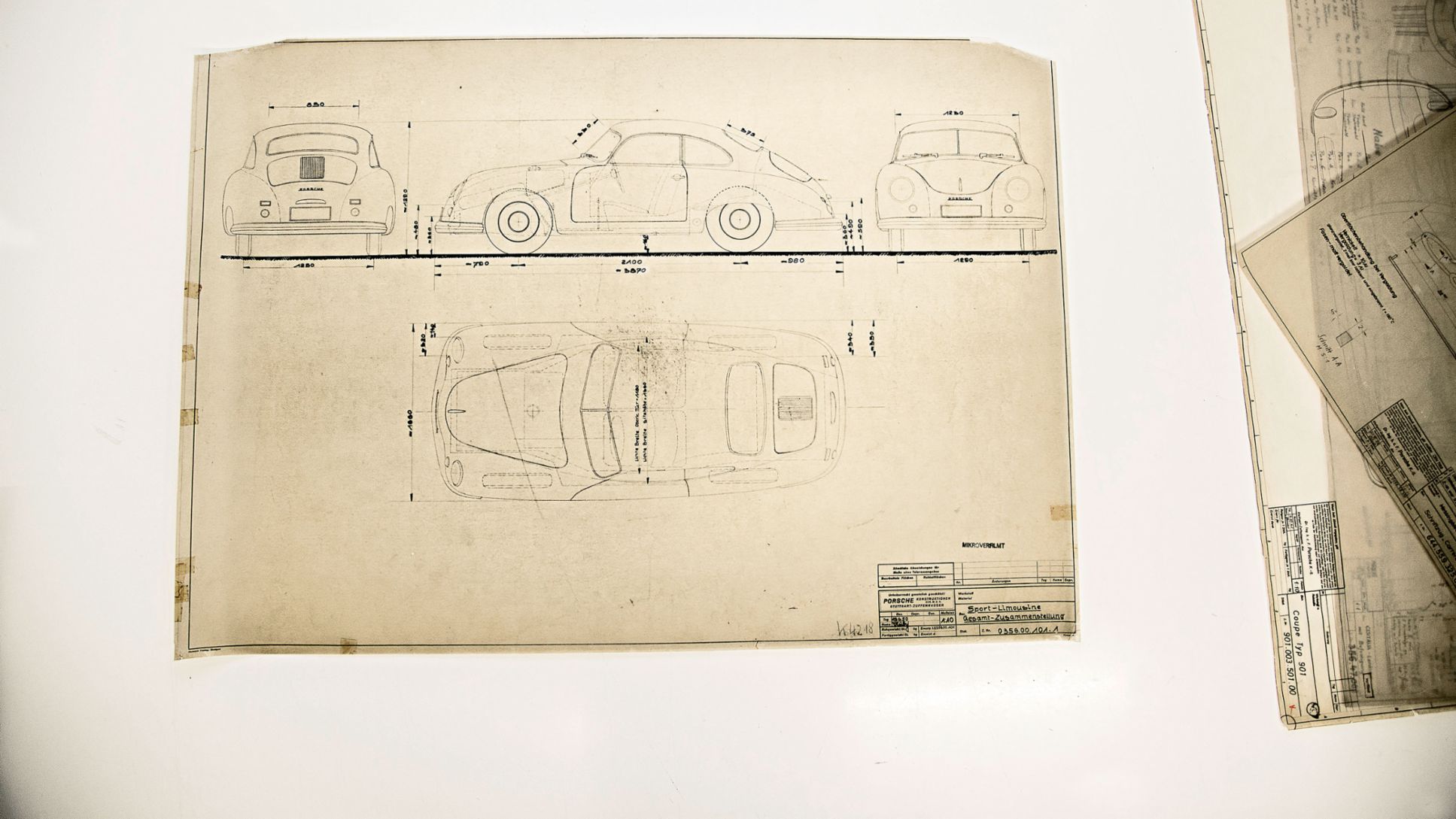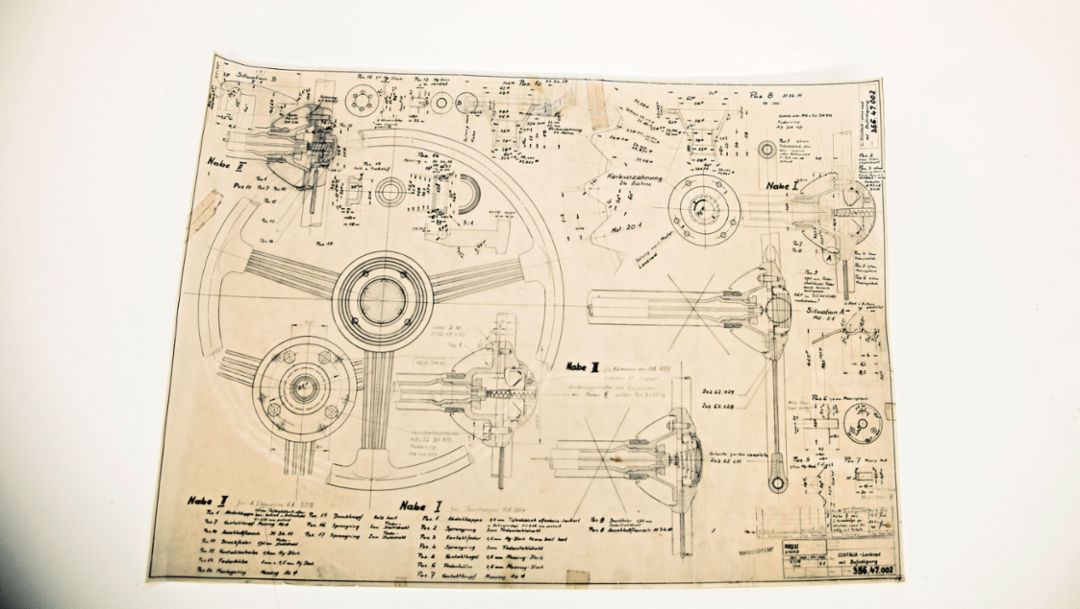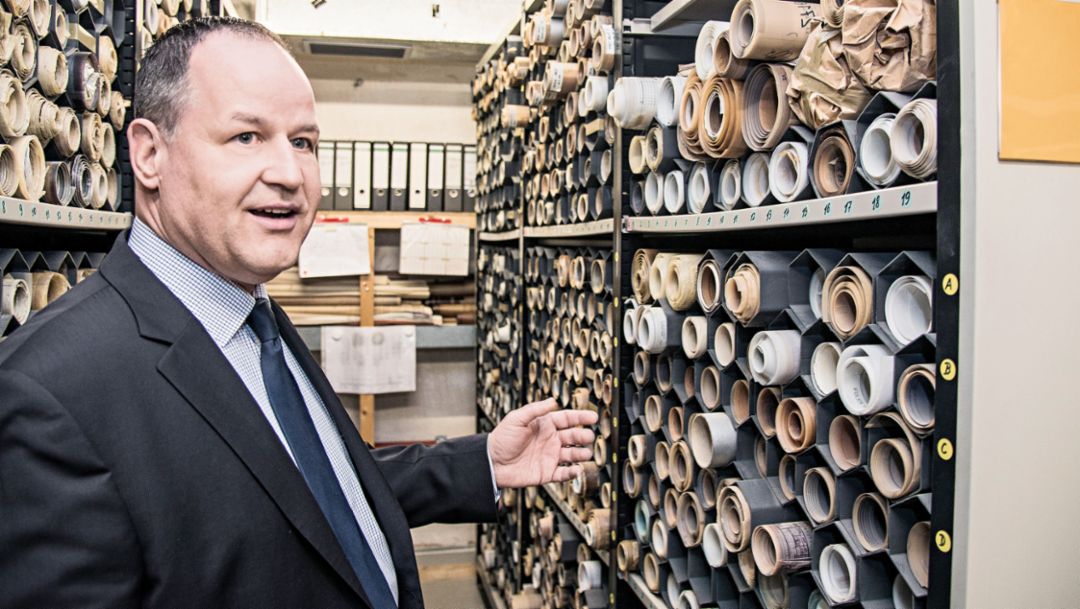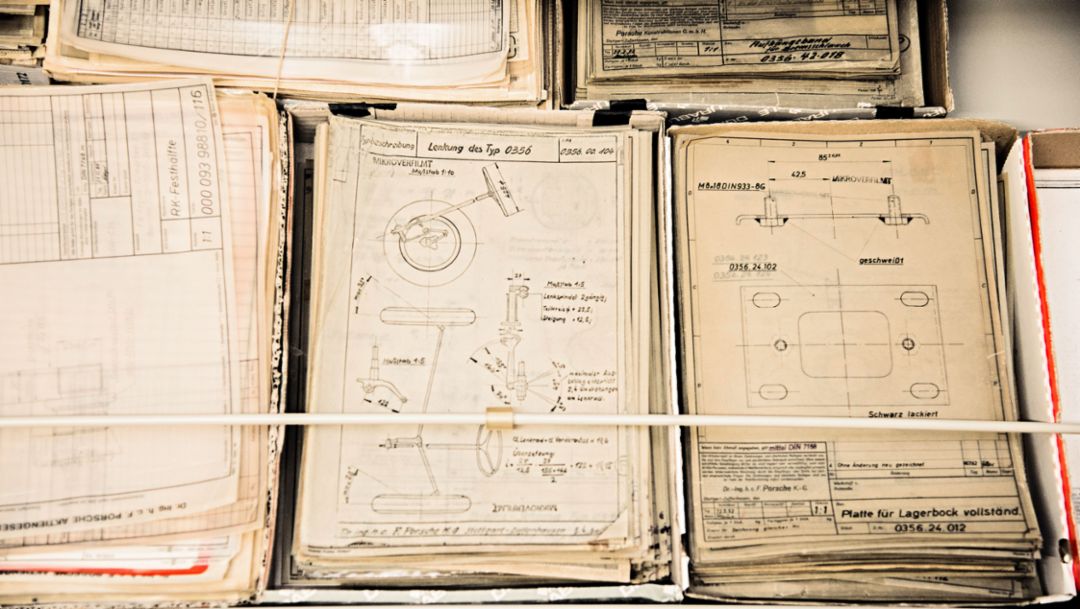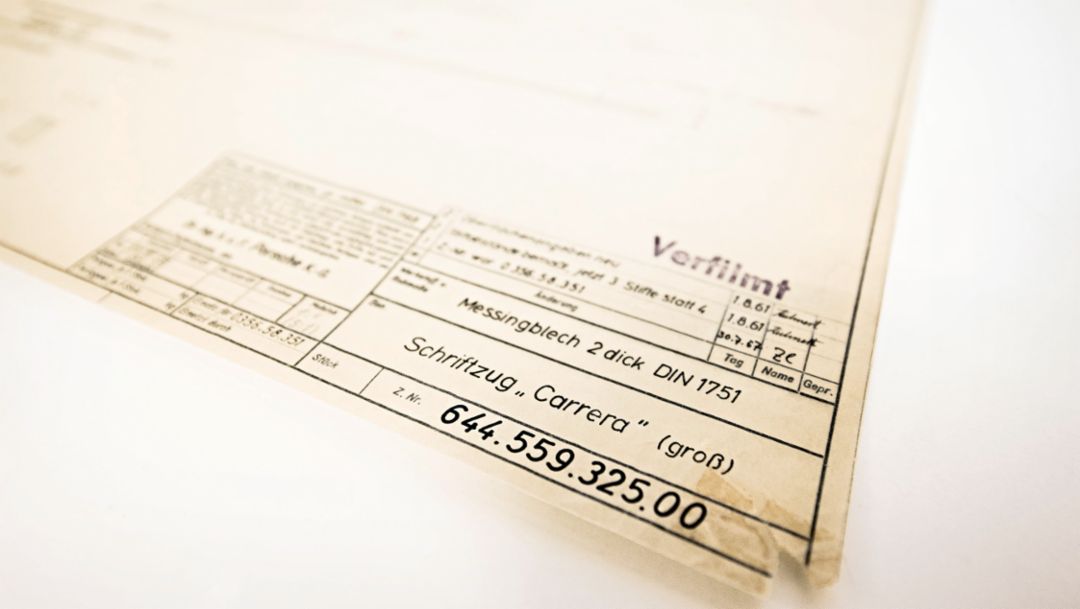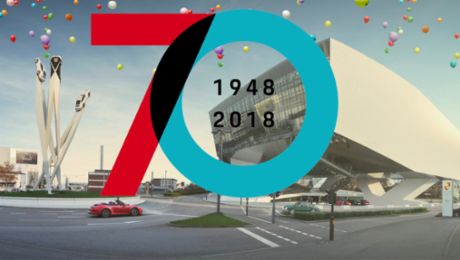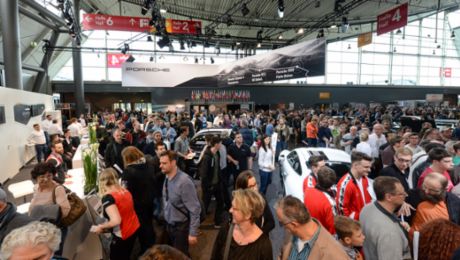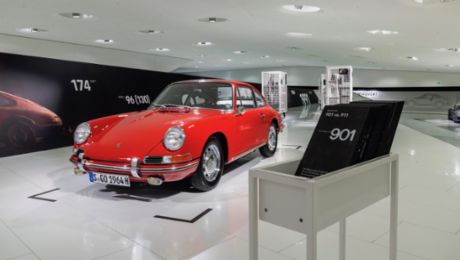Uwe Geisel’s movements are almost reverential as he unrolls a construction drawing with the utmost care and caution on the table top in front of him. He caresses the sheet of parchment with his hand and pauses briefly before commenting with the air of a true expert; “This technical drawing shows an early Carrera logo dating back to 1952”. The process is repeated with another sheet of parchment: “There's a lot of interesting details on this one, which was produced in 1948 for the Cisitalia. See the steering wheel? It makes another appearance in the Porsche 356-001”. Geisel allows the tension to build as he unrolls the next sheet; “This drawing shows the delicate bodywork of the 356. It was sketched out on a drawing board in 1950”. All of these drawings are originals that have survived the decades intact.
The windowless basement room in the Weissach Development Centre might appear cold and austere, but first impressions are deceptive. When Uwe Geisel pushes the large shutter cabinets apart, a wondrous sight appears – thousands of rolled-up construction drawings. Their orderly arrangement is reminiscent of honeycombs, as is their yellowish tint. Other drawings are kept in the shallow drawers of light grey metal cabinets. The number sequences on the front of these cabinets start with some familiar digits – “924 …”, “944 …”, “928 …” – but the numbers at the end are harder to interpret.
More than 100,000 historic drawings are stored here and Geisel’s love of them is manifest. Around one million aperture cards also come under his care. Packed tightly together in drawers, they hold data about Porsche designs of the distant past. A device in a black carbon finish was recently acquired in order to reproduce these cards. The UK-based supplier of this device is the only company in the world that manufactures card readers with the specific functionalities required.
The large and internationally renowned Porsche Archive is safely accommodated inside the new Porsche Museum. But most of the company’s reams of construction drawings can be found in Weissach. “We work closely together with our colleagues in Zuffenhausen”, emphasises Geisel. Requests from fans of classic Porsche vehicles are received as gladly here as they are in Zuffenhausen.
According to Uwe Geisel: “We have been working on digitising our holdings since 2002 to ensure everything survives”. The guiding principle is to collect as much as possible so that nothing is lost. The only items Geisel might consider rejecting are computer printouts of recent digital designs. And even those will first be inspected and sorted. “New material is still appearing”, says the expert. Recent arrivals include several certificates, awards and picture frames. His colleagues immediately recognised the value of the certificates and asked the expert for his opinion.
Geisel is confident that other treasures of this kind are still lurking in the cabinets of the Development Centre, and his hopes rest on the willingness of his colleagues to help him. They include soon-to-be retirees, for example, who are having one last sort through the flotsam and jetsam of their working life before they leave. For all such cases, Department EVS3 and its archive of digital and analogue drawings is only a phone call away.
Info
Photos: Bernd Haase
